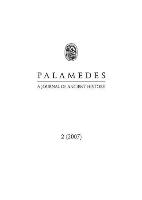JOVINIAN, JEROME AND AUGUSTINE. THE BIBLE IN THE SERVICE OF ARGUMENTS
JOVINIAN, JEROME AND AUGUSTINE. THE BIBLE IN THE SERVICE OF ARGUMENTS
Author(s): Przemysław NehringSubject(s): History
Published by: Wydawnictwa Uniwersytetu Warszawskiego
Keywords: THE BIBLE; EARLY CHRISTIANITY; JOVINIAN; JEROME; INTERPRETATION
Summary/Abstract: Somewhere around the year 391 the work of quidam monachus was started in Rome. He promoted some theses about virginity, marriage and asceticism in general which the Church elites of that time found somewhat controversial. His name was Jovinian and he became the symbol of one of the most ardent moral controversies entangling Western Christianity in the late 4th century when it forged its ideological stance. Owing to the testimony of his polemicists, we know that in the so-called commentarioli, written down in approximately 392, he claimed that the services of all classes among Christians – virgins, devout wives, and widows – should be treated equally. Secondly, he is also said to have claimed that Satan could not deceive and cause the downfall of those who were born anew from the waters of Holy Baptism. Thirdly, he allegedly believed that as far as the future life is concerned there is no difference between fasting and eating, on the condition, however, that the latter is done with appreciation and thanksgiving. Finally, he is also believed to have propagated the idea that in the Kingdom of Heaven there is one and the same reward awaiting all the baptized. According to the unanimous opinion of Ambrose and Augustine, he also became involved in the fourth-century Mariological dispute by questioning Mary’s virginity in partu.
Journal: Palamedes: A Journal of Ancient History
- Issue Year: 2007
- Issue No: 2
- Page Range: 189-200
- Page Count: 12
- Language: English
- Content File-PDF

